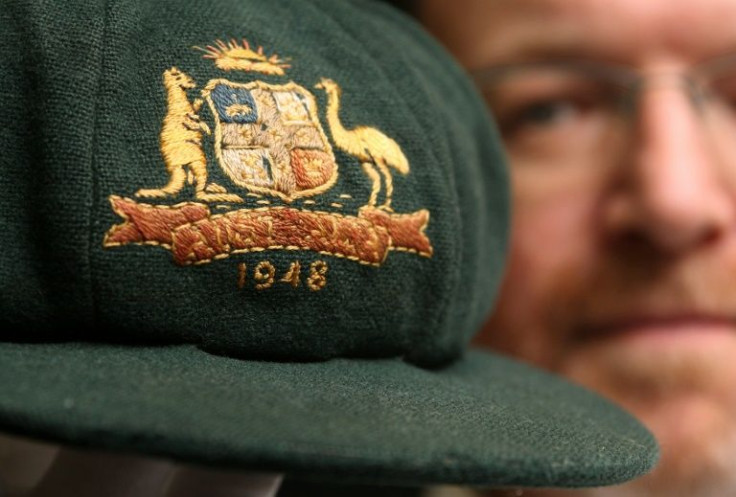Bodyline To Invincibles And Botham - Five Great Ashes Series
England and Australia begin the latest edition of the Ashes at Brisbane on Wednesday with the visitors looking to wrestle back the urn.
AFP Sport looks at five of the most memorable series between cricket's oldest enemies, a rivalry which stretches back to 1882:

Australia retained the urn as holders despite the series being drawn for the first time since 1972, with Steve Smith grabbing headlines on his return from a ball-tampering ban by excelling in the face of taunting English crowds.
He batted on a different level to everybody else, scoring 774 runs in just seven innings at an average of more than 110, including back-to-back centuries in the opening Test at Edgbaston.
Had he not missed three innings after being hit by a Jofra Archer bouncer, he might have got near Donald Bradman's all-time record of 974 runs in a Test series, set in 1930.
But the highlight of the series was England's phenomenal Ben Stokes-inspired one-wicket win in the third Test at Headingley.

With just one wicket remaining and 73 runs needed for victory, Stokes protected tailender Jack Leach to steer his side to their highest successful run chase in Tests with a memorable unbeaten 135.
The 2005 Ashes was one of the greatest series in cricket history and saw England triumph over their fiercest rivals for the first time in nearly 19 years.
It appeared to be business as usual for long-suffering England fans when Australia won the first Test at Lord's by 239 runs.

But when Australia fast bowler Glenn McGrath was ruled out of the second Test at Edgbaston after treading on a ball during practice on the morning of the match, England took charge.
England's Andrew Flintoff starred with both bat and ball and when Australia were 175-8, chasing 282 for victory, a home win looked assured.
But Australia edged their way closer before last man Michael Kasprowicz was caught behind off Steve Harmison to give England victory by a mere two runs.
The third Test was drawn and England survived a brilliant four-wicket burst from leg-spin great Shane Warne to win the fourth Test at Trent Bridge.

England, now 2-1 up and needing to avoid defeat in the fifth Test to regain the Ashes, were in danger of losing on the last day at the Oval until Kevin Pietersen's breathtaking 158 and a fine fifty from Ashley Giles rescued a draw.
Rarely has one man done as much to win an Ashes as Ian Botham in 1981.
He started the series as England captain, but after defeat in the first Test at Nottingham and the embarrassment of bagging a pair in a draw at Lord's, Botham resigned as skipper.
England were in dire straits after being made to follow on in the third Test at Headingley, with former England wicketkeeper Godfrey Evans -- who had become an odds-setter for a bookmakers -- making them 500/1 outsiders to win the match.
Botham's astonishing counter-attack innings of 149 not out, however, meant Australia were set a target of 130 before fast bowler Bob Willis's inspired 8-43 saw England to an astounding 18-run win.
Botham's scarcely believable return of five for one in 28 balls at Edgbaston ensured England won the fourth Test by 29 runs.
There were more heroics in the fifth Test when Botham's blistering 118 set up a 103-run victory at Old Trafford to clinch the series.
An Australia side captained by Don Bradman in his final Test series swept all before them in an undefeated tour during which they won the Ashes 4-0.
Underlining their superiority, Australia were set a seemingly impossible target of 404 on the last day to win the fourth Test at Headingley.
Yet they got there for the loss of just three wickets, with Arthur Morris making 182 and Bradman an unbeaten 173.
But the series is best remembered for Bradman's final Test innings at the Oval when, needing four for an average of exactly a hundred, he was bowled for a duck by leg-spinner Eric Hollies and had to make do with a mark of 99.94.
The most controversial Ashes series of them all was brought about by a desire to curb Bradman's phenomenal run-scoring.
England captain Douglas Jardine's response was to deploy 'leg theory' -- bowling short to a packed legside field -- with supremely accurate fast bowler Harold Larwood the spearhead of the attack.
It worked to the extent England won the Ashes 4-1, with Bradman's average for the series reduced to 56.57.
But the use of what became known as 'Bodyline', which saw batsmen having to defend themselves rather than their stumps, was condemned as "unsporting" by Australian officials and almost provoked a breakdown in diplomatic relations.
© Copyright AFP 2024. All rights reserved.





















